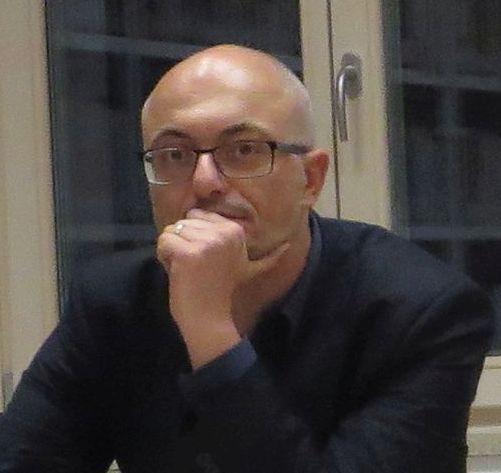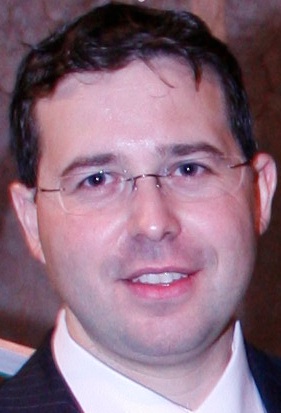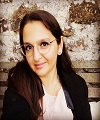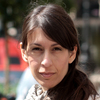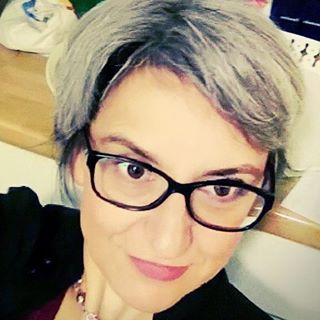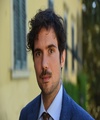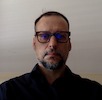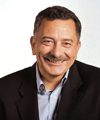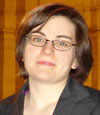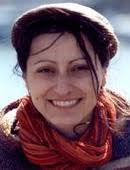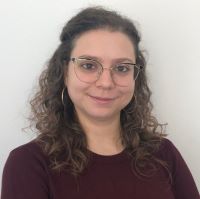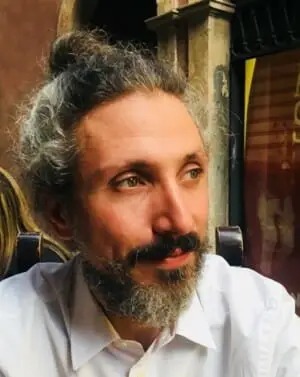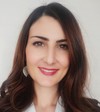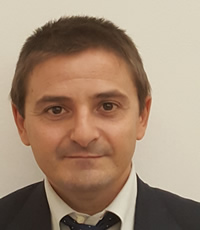Studying at the University of Verona
Here you can find information on the organisational aspects of the Programme, lecture timetables, learning activities and useful contact details for your time at the University, from enrolment to graduation.
Academic calendar
The academic calendar shows the deadlines and scheduled events that are relevant to students, teaching and technical-administrative staff of the University. Public holidays and University closures are also indicated. The academic year normally begins on 1 October each year and ends on 30 September of the following year.
Course calendar
The Academic Calendar sets out the degree programme lecture and exam timetables, as well as the relevant university closure dates..
| Period | From | To |
|---|---|---|
| CuCi IA | Sep 21, 2020 | Oct 31, 2020 |
| CuCi IB | Nov 9, 2020 | Jan 9, 2021 |
| CuCi IIA | Feb 15, 2021 | Apr 1, 2021 |
| CuCi IIB | Apr 14, 2021 | May 29, 2021 |
| Session | From | To |
|---|---|---|
| sessione d'esame invernale CuCi | Jan 11, 2021 | Feb 13, 2021 |
| sessione d'esame estiva CuCi | Jun 7, 2021 | Jul 24, 2021 |
| sessione d'esame autunnale CuCi | Aug 23, 2021 | Sep 18, 2021 |
| Session | From | To |
|---|---|---|
| sessione di laurea invernale 19-20 | Apr 7, 2021 | Apr 13, 2021 |
| sessione di laurea estiva 20-21 | Jul 5, 2021 | Jul 10, 2021 |
| Sessione autunnale di laurea a.a. 2020/21 | Nov 8, 2021 | Nov 13, 2021 |
| Sessione straordinaria di laurea a.a. 2020/21 | Mar 28, 2022 | Apr 2, 2022 |
| Period | From | To |
|---|---|---|
| Festa di Ognissanti | Nov 1, 2020 | Nov 1, 2020 |
| Chiusura Ateneo ponte Immacolata | Dec 7, 2020 | Dec 7, 2020 |
| Festa dell'Immacolata | Dec 8, 2020 | Dec 8, 2020 |
| Vacanze di Natale | Dec 24, 2020 | Jan 6, 2021 |
| Vacanze di Pasqua | Apr 2, 2021 | Apr 6, 2021 |
| Festa della liberazione | Apr 25, 2021 | Apr 25, 2021 |
| Festa del lavoro | May 1, 2021 | May 1, 2021 |
| Festa del Santo Patrono | May 21, 2021 | May 21, 2021 |
| Sospensione delle lezioni | May 22, 2021 | May 22, 2021 |
| Festa della Repubblica | Jun 2, 2021 | Jun 2, 2021 |
| Vacanze estive | Aug 9, 2021 | Aug 15, 2021 |
Exam calendar
Exam dates and rounds are managed by the relevant Culture and Civilisation Teaching and Student Services Unit.
To view all the exam sessions available, please use the Exam dashboard on ESSE3.
If you forgot your login details or have problems logging in, please contact the relevant IT HelpDesk, or check the login details recovery web page.
Should you have any doubts or questions, please check the Enrollment FAQs
Academic staff
 giovanni.bernardini@univr.it
giovanni.bernardini@univr.it
 marco.carradore@univr.it
marco.carradore@univr.it
 francesca.cecconi@univr.it
francesca.cecconi@univr.it
 monica.cristini@univr.it
monica.cristini@univr.it
 paolodalben@tin.it
paolodalben@tin.it
Hatzikiriakos Alexandros Maria
 alexandrosmaria.hatzikiriakos@univr.it
alexandrosmaria.hatzikiriakos@univr.it
 gianluca.lanfranchi@univr.it
gianluca.lanfranchi@univr.it
 giulia.pedrucci@univr.it
giulia.pedrucci@univr.it
 valentina.romanzi@univr.it
valentina.romanzi@univr.it
 alberto.scandola@univr.it
alberto.scandola@univr.it
 sorayaelizabeth.shamloo@univr.it
sorayaelizabeth.shamloo@univr.it
 nicola.turrini@univr.it
nicola.turrini@univr.it
Study Plan
The Study Plan includes all modules, teaching and learning activities that each student will need to undertake during their time at the University.
Please select your Study Plan based on your enrollment year.
1° Year
| Modules | Credits | TAF | SSD |
|---|
2° Year activated in the A.Y. 2021/2022
| Modules | Credits | TAF | SSD |
|---|
1 module among the following3° Year activated in the A.Y. 2022/2023
| Modules | Credits | TAF | SSD |
|---|
2 modules among the following| Modules | Credits | TAF | SSD |
|---|
| Modules | Credits | TAF | SSD |
|---|
1 module among the following| Modules | Credits | TAF | SSD |
|---|
2 modules among the following| Modules | Credits | TAF | SSD |
|---|
Legend | Type of training activity (TTA)
TAF (Type of Educational Activity) All courses and activities are classified into different types of educational activities, indicated by a letter.
Type D and Type F activities
| years | Modules | TAF | Teacher |
|---|---|---|---|
| 1° 2° 3° | Laboratory of Theatrical Criticism | F |
Simona Brunetti
(Coordinator)
|
| years | Modules | TAF | Teacher |
|---|---|---|---|
| 1° 2° 3° | Laboratory of Theatrical Criticism | F |
Simona Brunetti
(Coordinator)
|
| years | Modules | TAF | Teacher | |
|---|---|---|---|---|
| 1° | Data elaboration laboratory | F |
Rossana Cotroneo
(Coordinator)
|
|
| 1° 2° 3° | "Common world. 2022 Arendt Seminars | F |
Olivia Guaraldo
(Coordinator)
|
|
| 1° 2° 3° | History of comics | F |
Claudio Gallo
(Coordinator)
|
|
| years | Modules | TAF | Teacher | |
|---|---|---|---|---|
| 1° | Data elaboration laboratory | F |
Rossana Cotroneo
(Coordinator)
|
|
| 1° 2° 3° | "Common world. 2022 Arendt Seminars | F |
Olivia Guaraldo
(Coordinator)
|
|
| 1° 2° 3° | PhD Conference 2021: Margins and Forgotten places | F |
Simona Brunetti
(Coordinator)
|
|
| 1° 2° 3° | Creative Writing Laboratory | F |
Veronica Gobbato
(Coordinator)
|
|
| 1° 2° 3° | Journalistic Writing Laboratory | F |
Andrea Capuzzo
(Coordinator)
|
|
| 1° 2° 3° | History of comics | F |
Claudio Gallo
(Coordinator)
|
|
Semiotics and Philosophy of Science - Semiotics (2022/2023)
Teaching code
4S008050
Teacher
Credits
6
Language
Italian
Scientific Disciplinary Sector (SSD)
L-LIN/01 - HISTORICAL AND GENERAL LINGUISTICS
Period
1 A, 1 B
To show the organization of the course that includes this module, follow this link: Course organization
Program
The Semiotics module is conceived as an introduction to the concepts, terminology and style of analysis of semiotics, dedicating to the relationship of this discipline with the scientific study of language, and the acquisition of language and human cognition in general, in both typical and atypical contexts (as in the case of people suffering from developmental dyslexia).
The mechanisms through which the human mind is able to construct meaning out of a text (written or oral) will be presented and discussed, with particular attention to the persuasive communication typical of advertising and political propaganda. In particular, we will deepen the analysis of some semiotic expedients that are also used in these forms of communication to implicitly communicate questionable contents that escape the critical scrutiny of the recipient.
At the end of the course participants must have understood the cognitive foundation of the fundamental concepts of semiotics, and be able to apply the methods of analysis of the discipline to the language of modern media.
The program will be the same for attending and non-attending students.
Attending and non-attending students are invited to consult the detailed program, the slides and the materials uploaded on the e-learning page of the course.
Bibliography
Didactic methods
The lessons of this course will be held in presence. They will be mainly frontal, but ample space will be given to the interaction and critical analysis of materials.
Learning assessment procedures
The exam will verify the theoretical and practical skills acquired by the students during the course. The exam will consist of a written test lasting 1:30 hours and will include open and multiple choice questions on the theoretical part, as well as discussion of practical cases based on what was dealt with in class during the lessons. The questions will therefore focus on all the topics of the program, both those dealt with in the classroom during the lessons and which will be made available on the e-learning platform, and those prepared independently by the students on the texts indicated. The exam will be the same for attending and non-attending students. The final grade of the "Semiotics and Philosophy of Science" (12 CFU) course will be given by the average of the grades obtained in the two courses of "Semiotics" and "Logic and Philosophy of Science".
Evaluation criteria
The tests will be evaluated on the basis of the following criteria:
- substantial correctness of the answers and completeness of the contents;
- expressive clarity, argumentative ability and knowledge of the specific language of the subject.
Exam language
Italiano
Career prospects
Module/Programme news
News for students
There you will find information, resources and services useful during your time at the University (Student’s exam record, your study plan on ESSE3, Distance Learning courses, university email account, office forms, administrative procedures, etc.). You can log into MyUnivr with your GIA login details: only in this way will you be able to receive notification of all the notices from your teachers and your secretariat via email and soon also via the Univr app.
Graduation
Documents
| Title | Info File |
|---|---|
|
|
pdf, it, 263 KB, 09/02/22 |
List of theses and work experience proposals
| theses proposals | Research area |
|---|---|
| Laureandi Scienze della Comunicazione: vademecum | Various topics |
| Stage | Research area |
|---|---|
| L'iter del libro in biblioteca | Various topics |
| Proposte stages - Centro di ricerca Skenè | Various topics |

 +39 045 802 8459
+39 045 802 8459
